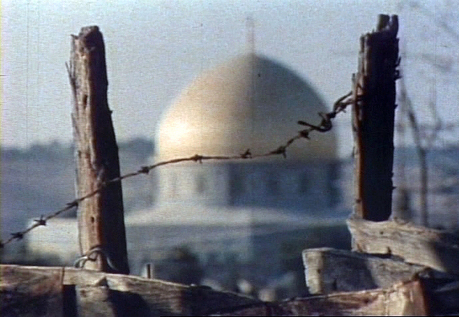From the Editor: Thoughts on ‘Occupied Palestine’
Author ········· Danah Abdulla
Published ······ Online, May 2013
Section ······· Culture
Published ······ Online, May 2013
Section ······· Culture

The London Palestine Film Festival opened on Friday 3 May with a screening of a digitised version of David Koff’s 1981 documentary Occupied Palestine. The documentary was extremely refreshing – especially since recently, many documentaries have been quite disappointing. Directors, many with no prior filmmaking experience (or what feels like none), flaunt their amateurish ways: poorly framed shots (heads missing in the frame, strange angles), bad sound work, shaky camera work (which some have described to give a sense of discomfort to the viewer, but it’s more a sign of poor camera work), and lack of originality. Of course, in all fairness to filmmakers working on Palestine, we cannot deny that mobility in Palestine is quite different now than it was back when Koff made this film. Koff's work, one of the first films to analyse the situation in Palestine, was the length of a feature film, yet unlike some documentaries who are bordering on the 1.5-2 hour mark, it doesn’t make you eager to leave the theatre. Koff keeps viewers engaged with steady camera work, well chosen shots and still images, engaging interviews and narrative, and a great score (featuring Marcel Khalife).
Occupied Palestine also made me realise how far the Palestinian issue has come. During the Q&A with Karma Nabulsi, Koff described the difficulties of getting the film screened at the time; stating that no one wanted to touch it and “the film had a life on the college campus.” 30+ years later, the Palestine issue has come out of the classroom as we now see numerous festivals screening films related to Palestine, or festivals dedicated entirely to films on Palestine, worldwide. This was almost unimaginable less than a decade ago. To the people at Palestine Film Foundation for their work on remastering this important work and for choosing it as the opening film, chapeau!
